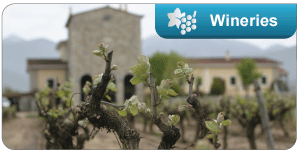Marouvas
Marouvas is a high-alcohol, traditional wine produced in the area of Kissamos in Chania, western Crete. Romeiko is the grape variety prevalent (if not the only one) in the wine. During the centuries of Ottoman rule the name “romeiko” indicated that anyone or anything to whom or to which it applied came from Greece.
Romeiko is a red variety highly prone to oxidation and rather unstable in color. Especially in the hot climate of Crete, it does not offer itself for the creation of “classic” red wines. In the local Cretan dialect Marouvas means “aged,” which clearly indicates that the wine was destined for long-term aging. Until recently, when a child was born it was customary to bury a barrel of Marouvas in the ground and dig it out to enjoy its contents years later at a great celebration, which could have been that child’s own wedding!
The main organoleptic features of Marouvas evoke sherry or Madeira wines and are as follows:
• Long-term aging in old, large barrels which have been replenished with new wine every year
• The wine’s high alcoholic content, which is owed partly to the variety itself and partly to soil and climatic conditions prevalent in the area
• The distinct presence of oxidation, both in terms of aroma as well as taste, even just a few months after the harvest - which, as in sherry and Madeira wines, does not constitute a flaw: oxidation can well become an integral part of the wine’s other organoleptic features, thus endowing the wine with complexity
• The intense aroma which evolves over time
Marouvas is a traditional wine considered exceptional by some and …simply oxidized by others. When sipped as an apéritif or, as the locals do, accompanied by a slice of apple at the end of a meal, Marouvas evokes the Mediterranean environment in which it was born centuries ago.


